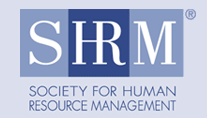The Global Economy and the Workplace: How Our Interconnected World Impacts Lives and Livelihoods
No matter where you work, the ever-shifting global economy has a tremendous impact on your organization, your workers and your workplace. Join us to hear from world-renowned economists and international employment policy experts on the current and future state of the global workplace with a focus on demographic changes, economic and political trends and evolving market conditions.
Gad Levanon
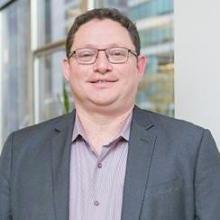
Gad Levanon is Chief Economist of The Burning Glass Institute.
Previously, Gad was with The Conference Board where he was founder of the Labor Market Institute and led the Help Wanted OnLine© program. His research focuses on trends in US and global labor markets, the US economy, and their impact on employers.
He is a regular contributor to Forbes and also often contributes opinion pieces to other national media outlets. In 2016, he won the Consensus Economics forecast accuracy award for the US economy for his work at The Conference Board. Levanon is also an adjunct professor in the economics department at NYU.
Prior to The Conference Board, he worked at the Israeli Central Bank. He received his PhD in economics from Princeton University and holds undergraduate and master’s degrees from Tel Aviv University.
Daniel Rogger
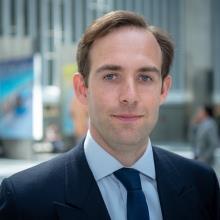
Daniel Rogger is a Research Economist in the Impact Evaluation Unit at the World Bank. His areas of interest are political economy, and organizational and public economics. Dan’s research aims to understand how to build organizations that effectively deliver public services. He does large scale surveys and research in collaboration with civil service organizations across the world. Dan did his PhD in economics at University College London (UCL), his Masters in Economics at the University of Cambridge, and his undergraduate degree in economics at UCL. Previously, he has worked as an Economist in the Presidency of Nigeria, an Associate Researcher for the UK's Department for International Development, and as a PhD scholar at the Institute for Fiscal Studies.
Michael Mandel
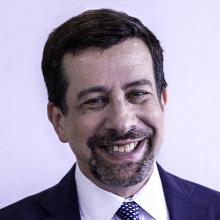
Dr. Michael Mandel is Vice President and Chief Economist at the Progressive Policy Institute in Washington DC and senior fellow at the Mack Institute for Innovation Management at the Wharton School (UPenn). He was chief economist at BusinessWeek prior to its purchase by Bloomberg.
With experience spanning policy, academics, and business, Dr. Mandel has helped lead the public conversation about the economic and business impact of technology for the past two decades. Mandel’s seminal analysis showing how ecommerce creates jobs and reduces inequality was featured by the Wall Street Journal, New York Times, Washington Post, Boston Globe, and Financial Times, among others.
Mandel argues that Americans suffer from too little innovation, rather than too much. More innovation, especially in “physical” industries such as manufacturing, agriculture, and healthcare, will raise wages and create more good jobs. His current work focuses on the economic benefits of digital manufacturing; job creation by ecommerce and 5G; pharmaceutical pricing and innovation; and regulation of cross-border data flows. He spearheads PPI’s “Investment Heroes” annual report, and tracks App Economy jobs around the world.
Mandel has written four books, including the optimistic Rational Exuberance. His economics textbook, Economics: The Basics, is in its fourth edition. He received a PhD in economics from Harvard University, and taught at NYU’s Stern School of Business.
Gabriella Rigg Herzog
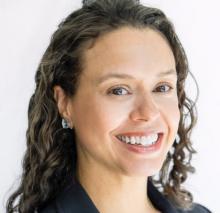
Gabriella Rigg Herzog joined the United States Council for International Business (USCIB) in 2017 as Vice President for Corporate Responsibility & Labor Affairs. In this role, she leads USCIB’s policy work and international engagement on responsible business conduct, including corporate responsibility, human rights, labor and employment issues, and corporate governance, and she also co-lead’s USCIB’s sustainability practice. Additionally, Ms. Herzog serves as an industry representative on advisory boards of the U.S. Departments of State, U.S. Customs and Border Protection, the International Labor Organization (ILO), and the Organization for Economic Cooperation and Development (OECD).
Before joining USCIB, Ms. Herzog worked for 10+ years advancing trade, development, human rights, and sustainability in the public and private sectors. At Hess Corporation, she served as Senior Manager for Corporate Social Responsibility, where she led the development and integration of key ESG policies into enterprise management systems in collaboration with cross-discipline peers. Prior to Hess, Ms. Herzog served as Policy Advisor at the U.S. Department of State’s Bureau of Democracy, Human Rights, and Labor, where she led the global CSR policy and program practice, and she also served as an International Program Officer in the U.S. Department of Labor’s International Labor Affairs Bureau (ILAB) where she supported the enforcement of the labor chapters of U.S. Free Trade Agreements and the implementation of labor ministry capacity building programs.
Ms. Herzog earned her BA (cum laude) from Northeastern University, her Master of Arts in Law and Diplomacy from The Fletcher School at Tufts University, and has been a First Mover Fellow” of The Aspen Institute’s Business and Society Program since 2014. The daughter of a Venezuelan immigrant, Ms. Herzog is originally from the San Francisco Bay Area and now lives with her family in the New York City metropolitan area.
Find Sessions by Day
